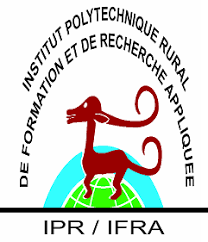SustainFood Network
Partner Networks

Al Moutmir
Initiated by OCP in 2018, Al Moutmir, is hosted by UM6P and its College of Agriculture and Environmental Sciences (since 2022). It is a multiservice offer including innovative and customized solutions to better serve farmers and especially the smallholder ones.
The ambition is to support the emergence of sustainable, resilient and inclusive food and farming systems that boost production, preserve natural resources and contribute to the well-being of farmers.
Al Moutmir offer includes customized solutions that cover the entire value chain: soil health, customized fertilization solutions, extension services, conservation AG, sustainable mechanization and connection to market.
Adopting a scientific and partnership approach, the Al Moutmir team works closely with farmers.
Learn more: www.almoutmir.ma

AUDA-NEPAD
At the 31st Ordinary Session of the Assembly of African Union Heads of State and Government in Nouakchott, Mauritania, in June 2018, a decision was taken to transform the NEPAD Planning and Coordination Agency into the African Union Development Agency-NEPAD (AUDA-NEPAD). The establishment of AUDA-NEPAD is part of the global reforms geared at improving the Union’s impact and operational efficiency.
Learn more about AUDA-NEPAD and The NEPAD Water Centres of Excellence (NEPAD Water CoE)

COST: European Cooperation in Science and Technology
CA20138 – NETWORK ON WATER-ENERGY-FOOD NEXUS FOR A LOW-CARBON ECONOMY IN EUROPE AND BEYOND (NEXUSNET) is an international network of researchers collaborating with policymakers and the business sector. These collaborations will develop coherent and integrated water, energy, and food policies and support Europe’s transition towards a circular and low-carbon economy. NEXUSNET delivers examples of nexus-compliant decisions and makes policy recommendations to fulfill these decisions.

CAES, Makerere University
The College of Agricultural and Environmental Sciences (CAES) of Makerere University is one of the ten Colleges of Makerere University as provided for in the Universities and other Tertiary Institutions Management of Constituent Colleges of Makerere University (Statute 2012). The College was formed in 2011 as a merger of four units namely the Faculty of Agriculture, The Faculty of Forestry and Nature Conservation, The Makerere University Institute of Environment and Natural Resources (MUIENR), and the Department of Geography. The Vision of CAES is “To be the leading Institution of Academic Excellence and Innovations in Africa”.
Learn more about the College of Agricultural and Environmental Sciences
IFPRI
The International Food Policy Research Institute (IFPRI) provides research-based policy solutions to sustainably reduce poverty and end hunger and malnutrition in developing countries. Established in 1975, IFPRI currently has more than 600 employees working in over 50 countries. It is a research center of CGIAR, a worldwide partnership engaged in agricultural research for development.
IITA
The International Institute of Tropical Agriculture (IITA) is a non-profit institution that generates agricultural innovations to meet Africa’s most pressing challenges of hunger, malnutrition, poverty, and natural resource degradation. Working with various partners across sub-Saharan Africa, IITA improves livelihoods, enhances food and nutrition security, increases employment, and preserves natural resource integrity.
IWMI
The International Water Management Institute (IWMI) is a research-for-development (R4D) organization, with offices in 13 countries and a global network of scientists operating in more than 30 countries. For over three decades, IWMI’s research results have led to changes in water management contributing to social and economic development.
IWMI’s Vision reflected in its Strategy 2019-2023, is ‘a water-secure world’. IWMI targets water and land management challenges faced by poor communities in developing countries, and through this contributes towards the achievement of the Sustainable Development Goals (SDGs) of reducing poverty and hunger and maintaining a sustainable environment.

Mohammed VI Polytechnic University
Mohammed VI Polytechnic University (UM6P) is a center of excellence that trains a new generation of committed leaders, the builders of the new Africa. Its innovative approach puts research and innovation at the heart of its educational system as the engine of a business model in which students are the creators of solutions. African challenges including food insecurity, urbanization, industrialization, and public policies have inspired the content of UM6P’s programs and curriculum. The university focuses on applied research and attempts to foster an environment of innovation and entrepreneurship.

PAUWES
Pan African Universities Institute for Water and Energy Sciences (including Climate Change) (PAUWES) was created in 2014 by the African Union Commission, in the framework of the Pan African University (PAU). Since its establishment, over 200 students from 31 countries across Africa have enrolled, and 73 students have successfully graduated from its programs. The Institute is hosted by the Abou Bakr Belkaïd University of Tlemcen. The institute is committed to building a new generation of highly educated, well-trained students who are committed to working as changemakers in sustainable water and energy.
Learn more about PAUWES and PAUWES’s partnership with the West African Science Center on Climate Change and Adapted Land Use (WASCAL)
Prima
The Partnership on Research and Innovation in the Mediterranean Area (PRIMA) is a joint programme to support food systems and water resources in the Mediterranean basin, partner countries,and international agreements. It is a ten-year initiative (2018-2028), partly funded by EU’s research and innovation programme Horizon 2020. Its main objective is to devise new research and innovation approaches to improve water availability and sustainable agriculture production in a region heavily distressed by climate change, urbanisation and population growth. The PRIMA foundation is in charge of implementing the partnership.
Rural Polytechnic Institute of Training and Applied Research of Katibougou
Founded in 1897, Institut Polytechnique Rural de Formation et de Recherches Appliquées de Katibougou (Rural Polytechnic Institute of Training and Applied Research of Katibougou) is a non-profit public higher-education institution located in the large town of Katibougou (population range of 10,000-49,999 inhabitants), Koulikoro. Institut Polytechnique Rural de Formation et de Recherches Appliquées de Katibougou (IPR-IFRA) offers courses and programs leading to officially recognized higher education degrees in several areas of study.
Learn more about Rural Polytechnic Institute of Training and Applied Research of Katibougou

RUFORUM
RUFORUM supports universities to address the important and largely unfulfilled role that universities play in contributing to the well‐being of small‐scale farmers and the economic development of countries throughout the sub-Saharan Africa region. The consortium has several unique features for building Africa’s innovation capacity and for engaging universities in the development process and practice.
Learn more about RUFORUM, RUFORUM Member Universities, RUFORUM Coverage, and RUFORUM Partners
SEI
Stockholm Environment Institute (SEI) is an international non-profit research and policy organization that tackles environmental and development challenges. SEI connects science and decision-making to develop solutions for a sustainable future for all. SEI’s approach is highly collaborative: stakeholder involvement is at the heart of our efforts to build capacity, strengthen institutions, and equip partners for the long term.

Stellenbosch University
Stellenbosch University is one of the four top research universities in South Africa. It takes pride in the fact that it has one of the country’s highest proportions of postgraduate students of which almost ten percent are international students.
The University lies in the picturesque Jonkershoek Valley in the heart of the Western Cape Winelands.
TAHMO
The Trans-African Hydro-Meteorological Observatory (TAHMO) aims to develop a vast network of weather stations across Africa. Current and historic weather data are important for many agricultural, climate monitoring, and hydro-meteorological applications. TAHMO aims to develop a dense network of hydro-meteorological monitoring stations in sub-Saharan Africa – one every 30 km.

University of Kwanzulu-Natal
The University of KwaZulu-Natal (UKZN) was formed on 1 January 2004 as a result of the merger between the University of Durban-Westville and the University of Natal. The new university brings together the rich histories of both the former Universities. UKZN is passionate about teaching and learning. The University’s motto “Every Student Matters” transcends the social, cultural, and academic discourse across the disciplines.

United Nations University EHS
The United Nations University (UNU) is the academic arm of the United Nations and acts as a global think tank. The mission of the Institute for Environment and Human Security (UNU-EHS) is to carry out cutting-edge research on risks and adaptation related to environmental hazards and global change. The institute’s research promotes policies and programs to reduce these risks while taking into account the interplay between environmental and societal factors.
.png&f=1&nofb=1&ipt=29bf15b664d2a3c0fb283c73d42190a311fbb42847170a65d5f84bfc314eb2e0&ipo=images)
WASCAL
West African Science Service Centre on Climate Change and Adapted Land Use (WASCAL) is a large-scale research-focused Climate Service Centre designed to help tackle this challenge and thereby enhance the resilience of human and environmental systems to climate change and increased variability. It does so by strengthening the research infrastructure and capacity in West Africa related to climate change and by pooling the expertise of ten West African countries and Germany.






